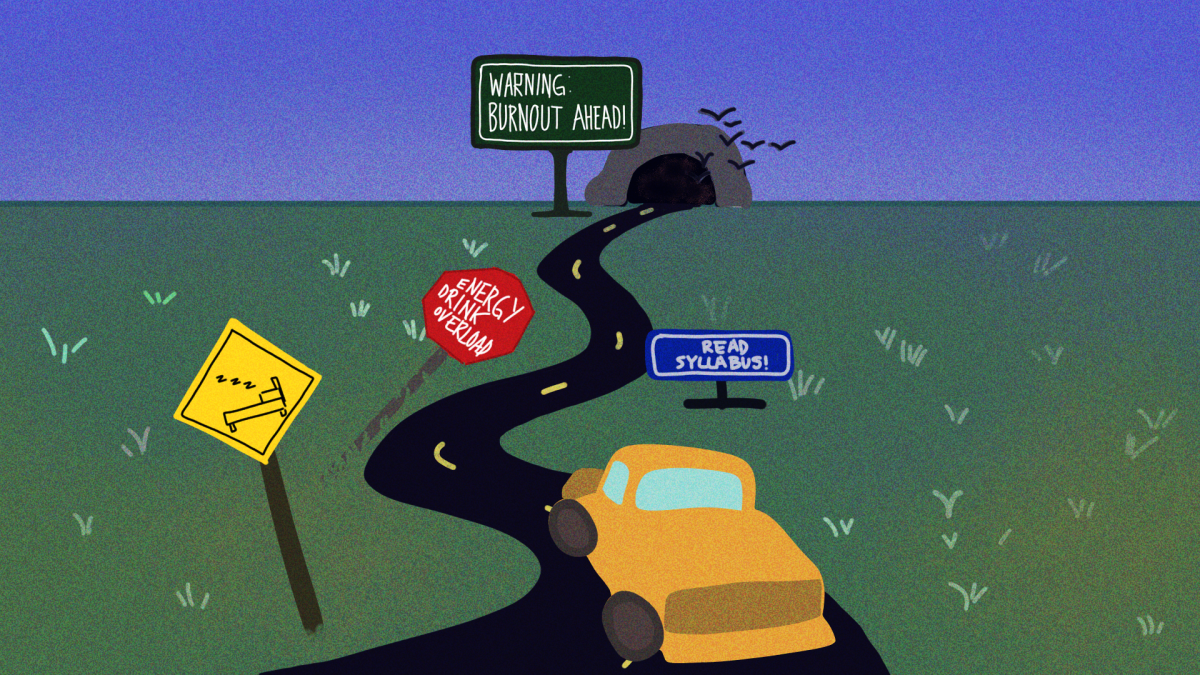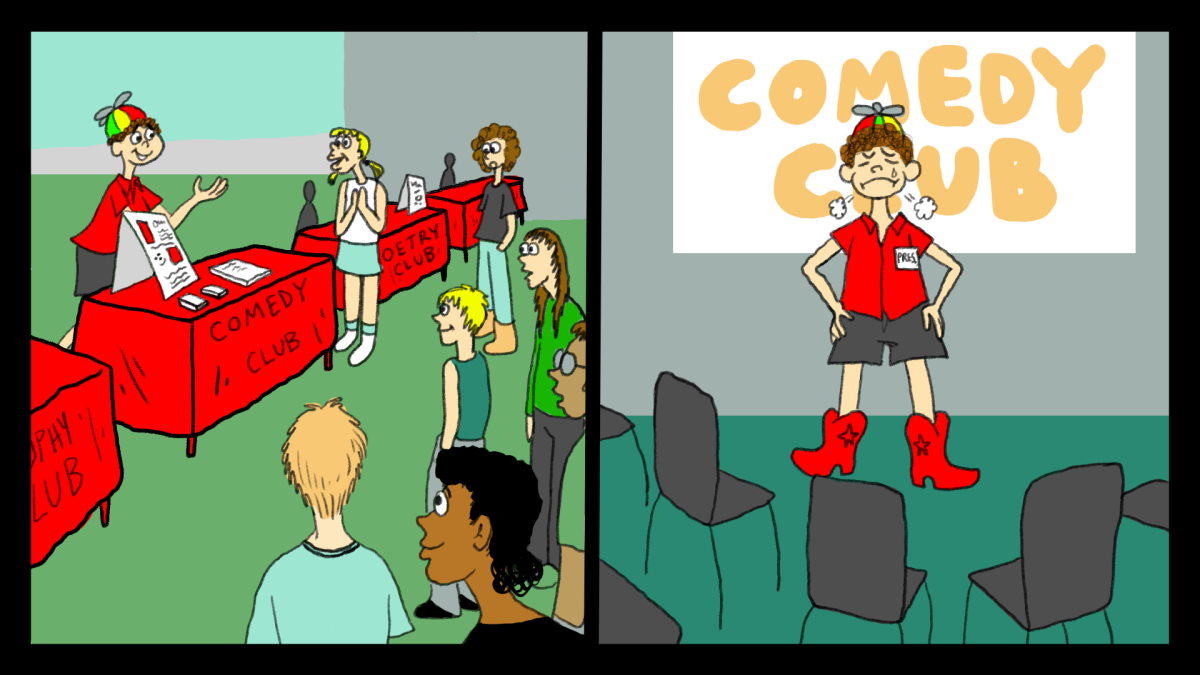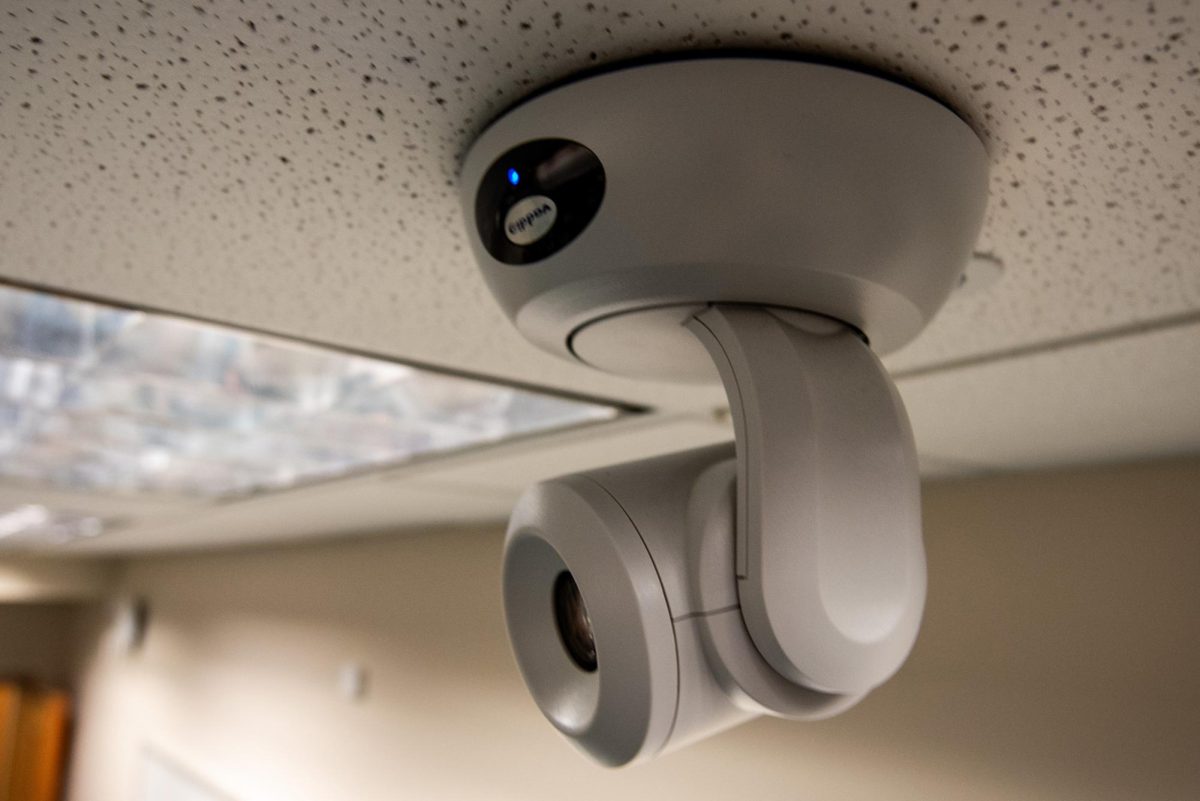Here we go again, beginning yet another fall semester. You’ve got high hopes, a color coordinated planner and detailed to-do list. They certainly won’t fail you this time, right?
Well, before you get too comfortable riding that wave of optimism, remember no one is immune to a mid-semester crashout. Let’s walk through a few foolproof ways to quickly derail your semester and how to stop that cycle.
Saying “yes” to everything during the first few weeks is not going to do you any good. In the excitement of a fresh start, it’s easy to overcommit, but if you want to avoid burnout by the third week it’s important to learn the freedom of saying the word “no.”
FOMO is real, but if you don’t maintain a healthy balance of classwork, socialization and rest, you’ll quickly find yourself exhausted and falling behind.
Another critical mistake you may make beginning the semester is overlooking the syllabus. It might be tempting to skip what feels like repetitive information, but the syllabus provides you with the answers to many of your questions; it’s the foundation to your success in each class.
LeNelle Patrick, an academic advisor for NC State’s University Advising and Exploratory Studies, emphasized the importance of planning out the semester and staying on top of assignments.
“I don’t like using the word ‘time management’ because you can’t change the time,” Patrick said. “We all have 24 hours in a day, but you can change how you take advantage of that time.”
She suggested keeping track of the semester’s assignments in a spreadsheet, noting that Moodle’s calendar may overlook important assignments only found in the syllabus.
“You can design your studying the way you like it,” Patrick said.
Now, I’m sure we’ve all fallen into the trap of fast food from time to time, but none of us can live on energy drinks and junk food. After all, caffeine and convenience store snacks are not a part of a sustainable diet.
In addition to containing startling levels of caffeine, some brands of energy drinks also contain up to 21 teaspoons of sugar, which is double the recommended daily limit.
I’ve experienced the effects of this kind of diet firsthand, and it’s not fun. When I’m running on nothing but coffee and quick snacks, the physical and mental effects are draining. I become significantly more irritable, my mood drops dramatically and my energy tanks.
Our bodies and brains need fuel, which means getting plenty of nutrients, water and sleep.
Patrick said, students on average need eight to ten hours of sleep, and she warns students to be careful about relying on long naps during the day. To make waking up in the mornings easier, Patrick suggests setting your phone away from your bed so you have to get up to turn off your alarm.
Another mistake many students make is ignoring the resources at their fingertips.
NC State offers an incredible range of support, from the Academic Success Center to the Counseling Center, but many students never take advantage of them.
“Asking for help, it’s not a deficit,” Patrick said. “Everybody asks for help.”
Don’t wait until you’re overwhelmed. The sooner you reach out, the easier things will be.
Last but not least, don’t save everything for your future self.
Procrastination is tempting. Trust me, I know. However, you don’t want your semester to crash and burn, so stay on top of things. Tackle assignments early, follow your plan and check in with yourself regularly.
Success isn’t about perfection; it’s about preparation and balance. So go ahead, ride that wave of optimism, but don’t just hope for a good semester — plan for one.





